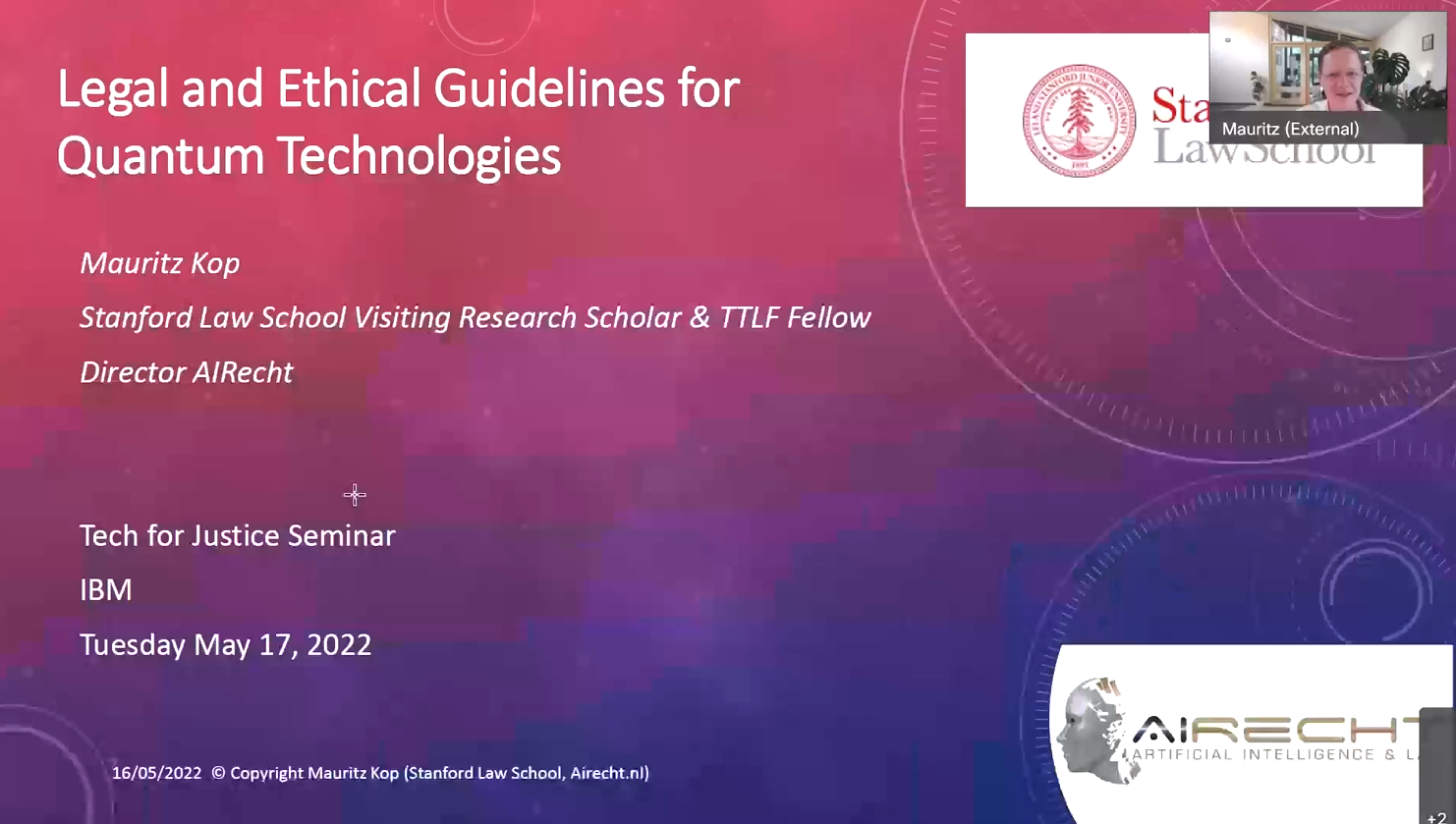Stanford, CA – December 6, 2023 – Stanford University today announced the launch of the Stanford Center for Responsible Quantum Technology (RQT), a pioneering initiative dedicated to addressing the profound ethical, legal, social, and policy implications of the rapidly advancing field of quantum technologies, including quantum artificial intelligence (QAI). The Center, part of the Stanford Program in Law, Science & Technology (LST) at Stanford Law School (SLS), is believed to be the first academic center of its kind.
Dutch Network for Academics in the USA Semicon, Geopolitics and Shared Values Event
The announcement was made during a distinguished Dutch Network for Academics in the USA event focused on semicon, geopolitics and shared democratic values, presented by the Stanford Institute for Economic Policy Research (SIEPR). The occasion was graced by the presence of outgoing Netherlands Prime Minister Mark Rutte, Nobel Prize winner and Stanford School of Business Professor Guido Imbens, Stephen Harris Professor of Materials Science and Engineering Mark Brongersma, and William H. Neukom Professor of Law Mark Lemley, who is also the Director of the LST program and serves as the faculty leader of the new Quantum Institute.
Mauritz Kop Founding Director of the Stanford Center for Responsible Quantum Technology
Mauritz Kop, who founded and directs the Center and began his tenure as a Transatlantic Technology Law Forum Fellow at Stanford Law School in 2019, highlighted the critical juncture at which the Center is being established. "Quantum technologies—especially in the areas of encryption, computing, and sensors—were rapidly evolving from hypothetical ideas to commercial realities," Kop observed. "Here, I determined, was where the most interesting–and pressing–questions of law and policy lay. Put simply, quantum technology involves the smallest particles in the universe but has the potential to create some of the world’s biggest technological quandaries and opportunities."
Stanford University Library RQT Scholarship Repository of Selected Works: https://purl.stanford.edu/hp536nb5631
Meer lezen











